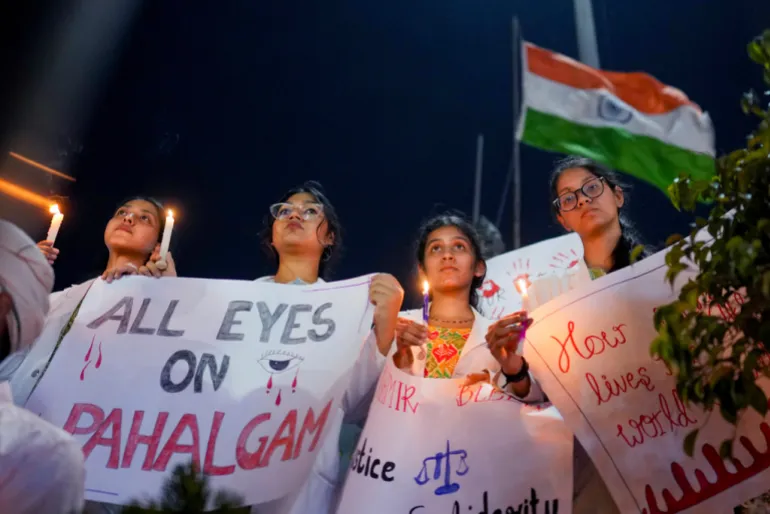In the early hours of Wednesday morning, India carried out missile strikes across several locations in Pakistan and Pakistan-administered Kashmir. The attacks mark the first time since the 1971 war that India has struck inside Pakistan’s Punjab province.
According to Pakistan’s military, the strikes hit six cities: four in Punjab province — Ahmedpur Sharqia (near Bahawalpur), Muridke (near Sialkot), Shakar Garh, and a nearby village — and two in Pakistan-administered Kashmir: Muzaffarabad and Kotli.
Lieutenant General Ahmed Sharif Chaudhry, the Pakistan military’s spokesperson, said during a morning press conference that the attack began at approximately 1 am local time.
Why Did India Strike?
The missile strikes come two weeks after a mass shooting in the Baisaran Valley near the tourist town of Pahalgam in Indian-administered Kashmir, where gunmen killed 26 people — 25 tourists and a local pony rider. India blamed the attack on Pakistan-backed armed groups, specifically naming The Resistance Front (TRF), which it claims operates from Pakistani territory.
Pakistan condemned the attack and denied any involvement, calling for a “transparent, credible, impartial” investigation.
Operation Sindoor: Name with a Message
India named its missile campaign “Operation Sindoor,” referencing the red powder worn by married Hindu women. The symbolism is tied to reports from survivors of the Pahalgam massacre, who said the attackers separated male tourists from women, targeting non-Muslim men and leaving behind widows. In Hindu tradition, widows stop wearing sindoor (vermilion) after their husbands die.
Tensions Mounting Since April 22 Attack
Since the Pahalgam killings, diplomatic and military tensions between the neighbors have intensified:
- India suspended its participation in the Indus Waters Treaty, potentially threatening Pakistan’s water supply.
- Pakistan threatened to withdraw from the Simla Agreement, a key diplomatic accord.
- Both sides expelled diplomats, closed borders, and restricted airspace.
- India revoked Pakistani visas and detained over 2,000 residents in Kashmir, some under anti-terrorism laws, while also demolishing homes of alleged fighters.
Fear of Full-Blown Conflict
With both India and Pakistan armed with nuclear weapons and a history of conflict over Kashmir, the latest escalation raises concerns over the potential for a broader war. Diplomatic backchannels appear frozen, and tensions remain high across both borders.






